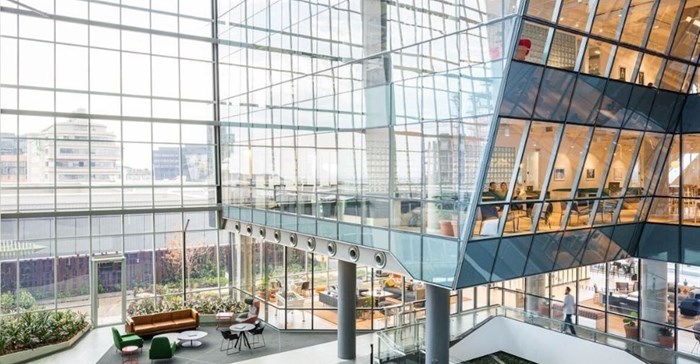
Investors who remain agile, stay attuned to market dynamics and leverage data-driven insights can realise excellent returns in the long term.
Here is a closer look at the key emergent trends which are reshaping the commercial property landscape in Jozi while also offering innovative investors new opportunities:
Over the past five years, Johannesburg has witnessed a remarkable surge in the demand for commercial spaces catering to the burgeoning technology and innovation sectors and the rise of tech hubs and co-working spaces has been particularly notable, reflecting a global trend towards flexible working arrangements.
This shift has been driven by a growing number of startups and tech companies choosing Johannesburg as their base, attracted by the city's connectivity, talent pool, and supportive business environment.
Some of the main areas where these tech hubs and co-working spaces are located include:
The retail sector in Johannesburg, like many metros in the world, has been significantly disrupted by e-commerce and changing consumer behaviours with the pandemic intensifying this shift.
However, the sector has also adapted in various ways to address these challenges with many bricks and mortar shops increasing their online presence and adding services like delivery and click and collect.
And while some larger shopping centres are dying a natural death as shoppers opt for ecommerce and their smaller local centres, there are exceptions.
Malls in certain areas are still thriving, especially high-end centres like Sandton City and Mall of Africa, which continue to attract shoppers by offering a diverse range of experiences, including a good mix of upscale retail stores, restaurants, entertainment options and, of course, a sense of security.
At the other end of the spectrum, we’re also seeing a burgeoning appreciation and support of artisanal and locally produced products, and pop-up markets and artisanal fairs have become very popular.
These adaptations have not only sustained the relevance of commercial retail spaces but have also contributed to the creation of vibrant consumer hubs.
With the exponential growth of e-commerce globally, Johannesburg has become a strategic hub for logistics and warehousing and the demand for distribution centres and storage facilities has surged, driven by the need for efficient supply-chain management.
And the demand for logistics and warehousing space has spurred significant growth in the industrial development sector and new industrial developments are now common, with developers often keen to capitalise on the booming e-commerce market.
These developments may include state-of-the-art warehouses, and distribution-, and fulfilment centres equipped with advanced technology and automation to meet the increasing demand for efficient supply-chain management.
There are, however, a number of challenges, including zoning restrictions, environmental concerns, and the high cost of land because these buildings require a considerable amount of land. And, in some cases, infrastructure and transportation networks may need to be upgraded or expanded to accommodate the growing logistics sector.
Additionally, concerns about land use and environmental regulations can also affect the development of new industrial facilities. Local government policies, labour availability, and the need for infrastructure investment are key factors that can impact industrial development in the Johannesburg area.
Demand for office space started to recover after lockdowns and restrictions eased but traditional workplaces are no longer the accepted norm.
The traditional office-space model has undergone a significant transformation with hybrid and remote working being common.
Additionally, the concept of flexible workspaces has gained momentum, driven by the desire for cost-effective solutions and the changing nature of work.
Co-working spaces, shared offices, and serviced offices have become increasingly popular, catering to the needs of start-ups, freelancers, and even established corporations embracing the agile work culture.
We’re also seeing older office buildings being repurposed to adapt to changing demands. For instance, some older office spaces have been converted into mixed-use developments, including residential units or retail spaces to maximise their utility.
The busiest areas for office space depend on factors such as the concentration of businesses, industry clusters, and economic conditions but generally, established business districts, and technology hubs continue to be significant hotspots for office spaces.
As Johannesburg continues to navigate a rapidly changing global landscape, both opportunities and challenges lie ahead for its commercial property market.
The adaptability of property developers, the responsiveness of the market to emerging trends, and the ability to create innovative spaces that meet the evolving needs of businesses will therefore be crucial.